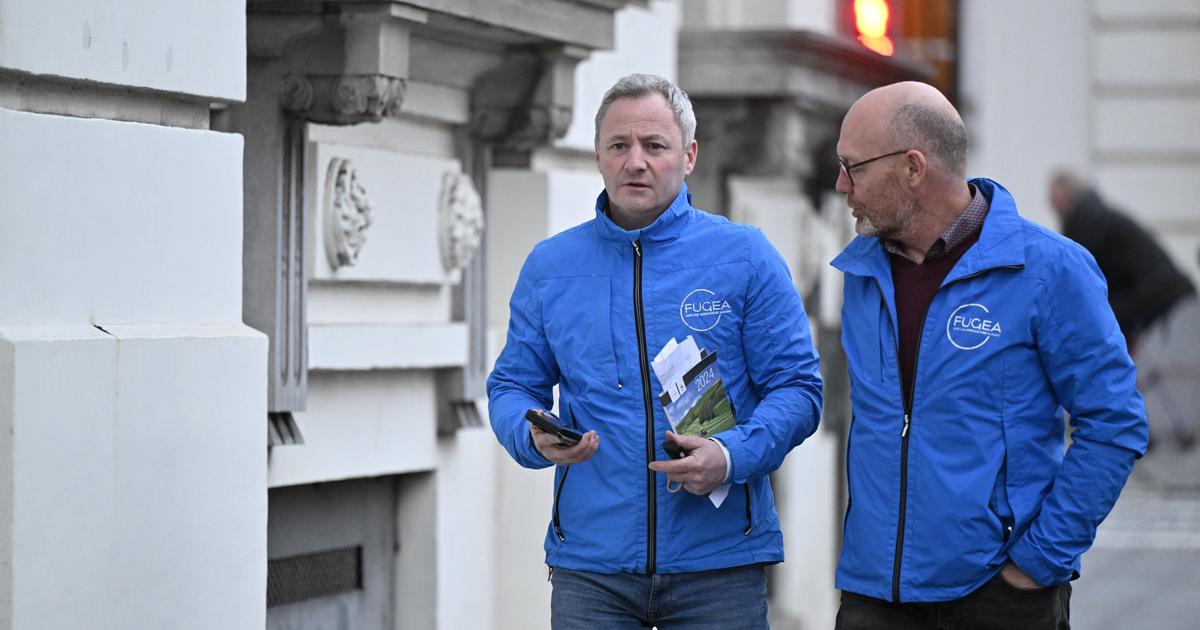The "greenwashing" is doing well: the climate commitments of large companies generally lack credibility and transparency, according to a report published Monday which looks at the stated ambitions of 24 multinationals from all sectors.
This study carried out by the think tanks NewClimate Institute and Carbon Market Watch assesses the strategies of these giants of trade, agrifood, transport and various industries which alone accounted for some 4% of global greenhouse gas emissions. greenhouse effect in 2019. They have in common to highlight their commitments in favor of the climate.
But the reality often falls short of what was promised, concludes the report, which finds a general lack of progress since a previous edition a year ago.
“
Most corporate climate strategies are mired in ambiguous commitments, compensation plans that lack credibility and exclusions from the scope of emissions
,” he points out.
This is the case with American Airlines, which has only a distant promise of carbon neutrality for 2050, without a target for 2030, and makes everything depend on “
sustainable
” fuels that are still very uncertain.
Read alsoWater, climate, energy: companies must make up for lost time
However “
reproducible good practices can be identified in a minority
”.
Of the 24 companies studied, only the climate strategy of Danish shipping giant Maersk – which invests in alternative fuels and new ships – has integrity deemed “
reasonable
”.
No company achieves a level of “
high
” integrity.
Crossroads among the bad students
The strategy of 15 other of the companies studied is deemed to be of “ low
” or “
very low
” integrity
.
The bad students identified are American Airlines, the French supermarkets Carrefour, the Brazilian meat giant JBS and the Korean Samsung.
These conclusions are based on the emissions data of the companies themselves and, among other things, on their use of “
offset
”.
The latter is widely used since 23 out of 24 companies use it to achieve their climate objectives.
It consists in financing, for example, the planting of millions of trees or renewable energy projects, which will then “
offset
” or absorb CO2.
The use of these mechanisms, little or badly verified, which often replaces the reduction of emissions, is severely criticized by UN experts.
The report also points out the limits, such as the displayed use of CO2 absorption capacities by land and forests that exceed their real capacities.
"
In this critical decade for climate action, current corporate plans do not reflect the urgency needed to reduce emissions
," said Thomas Day of the NewClimate Institute, one of the authors.
Insufficient promises
By 2030, their promises are thus far from what would be necessary to limit global warming to 1.5°C, the most ambitious objective of the Paris agreement.
They undertake overall to reduce their emissions by only 15%, or even 21% according to an optimistic interpretation, where it would take twice as much (-43%), the authors calculated.
Read alsoAfter a year of work, the “Great corporate challenge for the planet” presents its proposals
In the longer term, these multinationals all have ambitions of " carbon
neutrality
" or "
net zero emissions
" at different horizons (for example 2050 for Nestlé), which would imply a reduction of 90% or 95% of emissions for the most part. sectors.
But again, the reality is disappointing and the "
huge chasm
", with the combined reductions projected reaching only 36%.
The report also denounces a tendency of some not to count emissions.
Carrefour, still wearing the dunce cap this year, thus seems to exclude more than 80% of its stores (for example franchisees) from its climate objectives, according to the report.
“
We do not agree
”, reacted the group to AFP, highlighting a quantified reduction trajectory, including on indirect emissions, but without answering the question of the scope of stores retained.
JBS, singled out for vague commitments, judges the report “
misleading
” and regrets that its clarifications with the NGOs were not accepted.
Other companies implicated, contacted by AFP, also assured of their sincerity.
A Samsung spokesperson said he was ready to "
listen
" to the remarks.
Commitments that will not fail to be evaluated by the experts.








